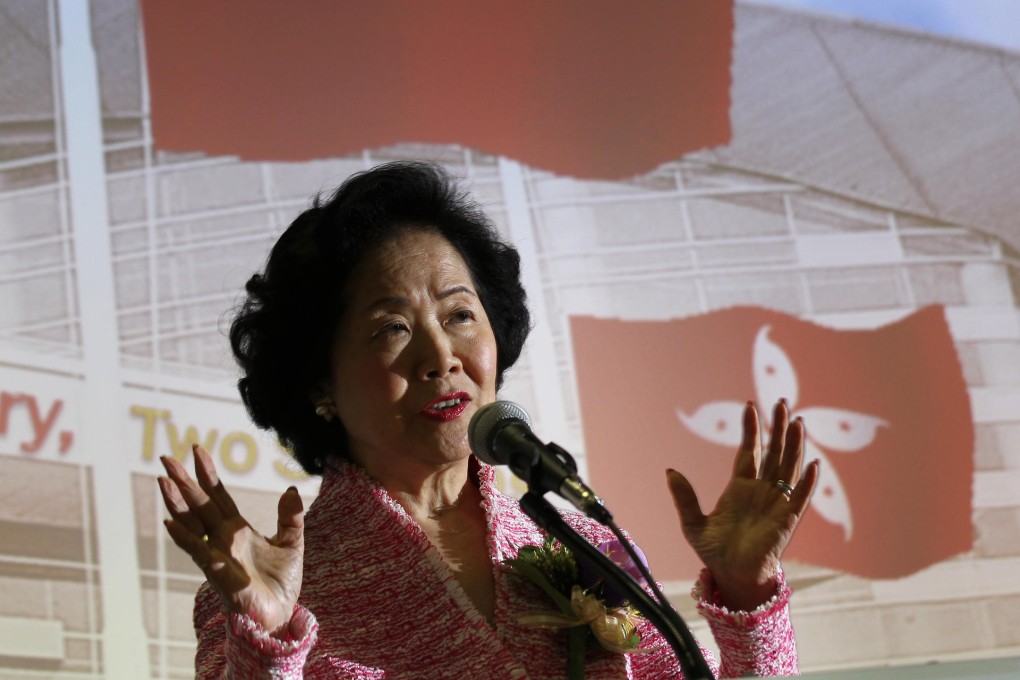Anson Chan weighs in on heated debate over universal suffrage
Former chief secretary takes pragmatic tone in heated debate, saying mutual respect is needed

Former chief secretary Anson Chan Fang On-sang has weighed in on the universal suffrage issue, taking a conciliatory and pragmatic tone in the heated debate.
It was not unreasonable for Beijing to expect Hong Kong's chief executive not to challenge China's one-party rule, she said at a Community College of City University seminar yesterday.
She added that surely Hongkongers did not want to see the leader they elected under universal suffrage unable to co-operate with the central government.
"What [the central government] now demands is not unreasonable. It demands a chief executive to not openly call for 'down with one-party rule'," she said. "Under 'one country, two systems', there has to be mutual respect. We hope that the central government will respect the 'two systems'. Likewise, we have to respect the 'one country'."
Under 'one country, two systems', there has to be mutual respect. We hope that the central government will respect the 'two systems'. Likewise, we have to respect the 'one country'."
Chan's comments follow the remarks of National People's Congress Law Committee chairman Qiao Xiaoyang last month, in which he said the city's chief executive had to love both the nation and Hong Kong and must not be confrontational towards the central government.